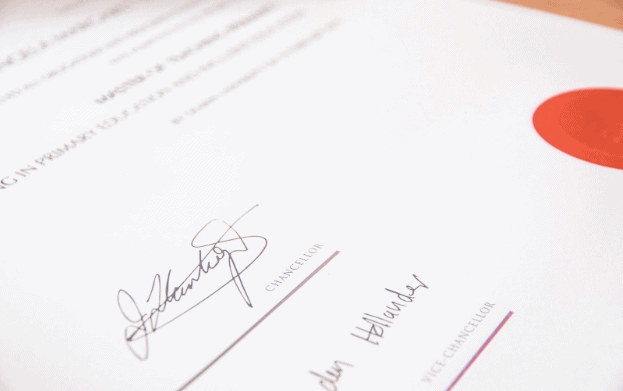What is a Certificate of Compliance? Meaning, Requirements, Examples

A certificate of compliance is a document that certifies that a product or system meets the requirements of a safety regulation or standard. It is typically used in shipping and logistics to ensure that products are safe for transport and meet the destination country’s requirements.
Certificate of compliance examples in logistics include documents such as the Safety Data Sheet (SDS), which certifies that a product is safe to ship, and the Certificate of Origin (COO), which certifies that a product was made in a particular country.
In addition to these examples, many other types of compliance certificates may be required depending on the type of product you are shipping.
Certificate of Compliance (COC) Meaning
A Certificate of Compliance, also known as a COC, is a quality assurance document issued by an independent third-party certification body. It certifies that a product or service meets the requirements of an international standard, such as ISO 9001 or ISO 14001.
A COC can give customers confidence that a product or service is high quality and that authorities have independently verified the product to meet the relevant standards. In some cases, the law may also require a COC.
For example, many countries have rules regarding the maximum level of specific contaminants in drinking water. If a water treatment plant is certified to ISO 9001, it can provide customers with a COC to show that it meets the relevant standards.
Compliance certificates are essential for quality assurance and can give customers peace of mind that a product or service is of high quality.
Who Issues a Certificate of Compliance/Certificate of Conformity?
A Certificate of Compliance (COC) or Certificate of Conformity (COC) is an official document that certifies that products comply with specified standards. The manufacturer usually issues it, but a third-party test laboratory can also give it.
The criteria can be voluntary, such as those set by trade associations, or mandatory, such as those set by governments.
A COC typically lists the product’s standards and the country of origin. For example, a COC might state that a product complies with all relevant European directives and is CE marked.
Alternatively, it might state that a product is compliant with ISO 9001:2008. In either case, the issuer of the COC certifies that the product meets the specified standards.
If you’re considering purchasing a product, it’s always a good idea to ask for a copy of the COC to ensure that the product complies with its claims.
Certificate of Compliance/Certificate of Conformity for Imports to the USA
The Certificate of Compliance or Certificate of Conformity is typically required for imports to the USA. A Certificate of Conformity is a document certifying that the imported product meets all applicable standards and regulations.
The manufacturer or an accredited testing laboratory issues these certificates. Many different standards and regulations can apply to imported products, so it is essential to check with the relevant authorities to determine which ones apply to your product.
Some examples of products that may require a Certificate of Compliance or Certificate of Conformity include medical devices, electrical equipment, and toys.
Certificate of Compliance/Certificate of Conformity for Exports to Other Countries
A certificate of compliance (also known as a Certificate of Conformity) is often required for the process of exporting goods to other countries. This document attests that the product meets all applicable standards and regulations.
Depending on the destination country, a certificate of compliance may be required for products ranging from cosmetics to electronics. In most cases, the supplier or manufacturer is responsible for obtaining the necessary certification.

However, checking with the relevant authorities in the destination country is always advisable to ensure that you have met all requirements. Heavy fines or even the seizure of products may occur if you violate import laws.
Therefore, it is always best to err on the side of caution and ensure that all documentation is in order before shipping any products overseas.
Certificate of Compliance/Certificate of Conformity Examples
A Certificate of Compliance (COC) or Certificate of Conformity is vital in the process of international shipping. It confirms that a product meets the importing country’s requirements, and Customs often requires it before they release the goods. There are many different types of products that need a COC, but here are five examples:
- Pharmaceuticals: all drugs and medical devices must have a COC before being shipped to another country. Having a COC beforehand ensures that the products meet safety and quality standards.
- Chemicals: any chemicals being shipped must have a COC. Chemicals in this category include both hazardous and non-hazardous chemicals.
- Food: all food products must have a COC before being exported. The foods include both fresh and processed foods.
- Vehicles: all vehicles being shipped internationally must have a COC. Vehicles requiring COC include cars, trucks, motorcycles, etc.
- Electronics: any electronics being shipped must have a COC. Electronics requiring this certification include items such as computers, TVs, DVD players, etc.
Do I Need a Certificate of Compliance?
Yes, you do need a certificate of compliance. One common scenario where you would need to request one is when importing goods into the country. Customs requirements may stipulate that certain goods and property can only be imported if they have the formal certification and permission from the country of origin.
The customs requirement ensures that the goods meet all relevant safety and quality standards. In some cases, a certificate of compliance may also be required when exporting goods.
The certification is usually to show that the goods meet the required manufacturing standards of the destination country. Certificates of compliance can also be required for certain building work or electrical installations.
The certification demonstrates that the work has been completed within the required safety standards. Overall, there are many situations where a certificate of compliance may be required. In most cases, it is used to ensure that goods or work meets all relevant safety and quality standards.
Conclusion
This formal certification is an essential document for any company. By understanding the requirements, requests, and examples, you can create a Certificate of Compliance that meets all necessary regulations.

